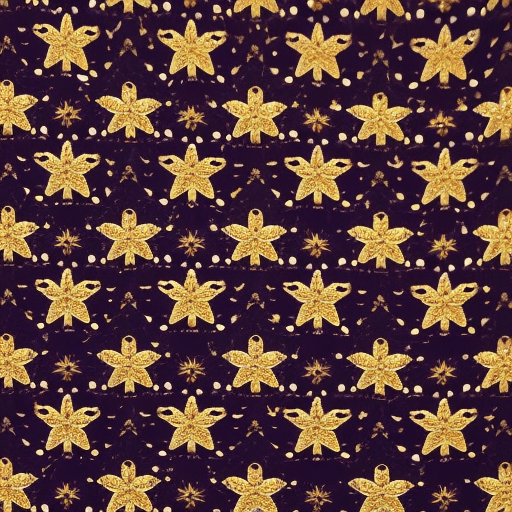Do you ever wonder how the zodiac signs came to be?
Well, get ready to delve into the fascinating history of these celestial symbols. From the ancient civilizations of Mesopotamia and Egypt to the influential contributions of the Greeks and Romans, the zodiac has undergone a captivating journey, as explored in our zodiac signs in different cultures guide.
Today, we continue to find meaning and guidance in our zodiac signs, as they offer us a sense of freedom and self-discovery.
So, let’s embark on this enlightening exploration together.
Key Takeaways

- The ancient Babylonians and Egyptians observed celestial bodies to predict human fate and personality traits, leading to the emergence of zodiac symbolism.
- Egyptian zodiac signs originated from the belief in the impact of stars and planets on human lives and were deeply embedded in ancient Egypt’s history and culture.
- Greek mythology and celestial symbolism played a significant role in shaping the zodiac signs, which are still widely recognized and studied today.
- Zodiac signs have enduring cultural significance, providing a sense of belonging, influencing decision-making and behavior, and offering entertainment and fun through horoscope readings and compatibility tests.
The Ancient Beginnings of Zodiac Signs
You’ll discover fascinating origins and stories behind the ancient zodiac signs. The ancient astrology practices that gave birth to the zodiac signs can be traced back to civilizations like the Babylonians and the Egyptians. These ancient cultures observed the movement of celestial bodies and believed that they held significance in predicting human fate and personality traits.
The zodiac symbolism emerged as a way to interpret the influence of the stars on individual lives. Each sign was associated with specific characteristics and traits based on the observed behavior of people born during certain times of the year.
This ancient practice of connecting celestial movements to human behavior continues to captivate and intrigue people today, offering a sense of wonder and freedom as it unlocks the mysteries of the universe.
Mesopotamian Influence on the Zodiac

As you explore the origins of the zodiac, you’ll discover the significant Mesopotamian influence on the development of these celestial symbols. The influence of Babylonian astrology played a crucial role in shaping the zodiac signs as we know them today.
Here are four reasons why the cultural significance of these signs resonates with people across the globe:
-
Connection to the Cosmos: The zodiac signs reflect humanity’s fascination with the stars and our desire to understand our place in the universe.
-
Guidance and Self-Discovery: Many find comfort and guidance in the zodiac, using it as a tool for self-reflection and personal growth.
-
Shared Language and Community: The zodiac creates a sense of unity and belonging, as it provides a common language for people to discuss and connect with one another.
-
Freedom of Choice: The zodiac offers individuals the freedom to embrace or reject its influence, empowering them to make their own decisions and live life on their own terms.
The Mesopotamian influence on the zodiac has shaped our cultural understanding of astrology and continues to captivate people seeking meaning and freedom in their lives.
The Zodiac in Ancient Egypt
Now let’s delve into the fascinating world of the Zodiac in Ancient Egypt.
You might be surprised to learn that the Egyptians had their own unique interpretation of the zodiac signs. Their zodiac originated from the belief that the movements of the stars and planets had a profound impact on human lives.
Egyptian Zodiac Origins
Did you know that the origins of the Egyptian zodiac can be traced back to ancient times? The Egyptian zodiac timeline spans over thousands of years, with its roots deeply embedded in the rich history and culture of ancient Egypt. The Egyptians were known for their meticulous attention to detail and exquisite artistry, and this is evident in the development of their zodiac system.
Here are four emotional responses that the Egyptian zodiac evokes:
- Awe: The intricate and beautifully crafted symbols of the Egyptian zodiac inspire a sense of wonder and admiration.
- Connection: The zodiac signs serve as a reminder of our connection to the ancient world and the wisdom of our ancestors.
- Curiosity: Exploring the meanings and characteristics of each zodiac sign sparks curiosity and a desire for self-discovery.
- Freedom: The Egyptian zodiac offers a unique perspective on astrology, giving individuals the freedom to explore different systems and find what resonates with them.
As we delve deeper into the world of the Egyptian zodiac, let’s now explore the fascinating symbols associated with each sign.
Egyptian Zodiac Symbols?
Have you ever wondered what the symbols of the Egyptian zodiac represent? In ancient Egypt, astrology played a significant role in people’s lives. The Egyptian zodiac consisted of 12 symbols, each representing a different time period and personality traits. These symbols were based on the cycles of the Nile River and the movement of the stars. They were believed to have a profound influence on a person’s character and destiny. Let’s take a closer look at the symbols and what they represent:
| Symbol | Time Period | Personality Traits |
|---|---|---|
| Aries | Mar 21 – Apr 19 | Adventurous, confident, and courageous |
| Taurus | Apr 20 – May 20 | Reliable, patient, and determined |
| Gemini | May 21 – Jun 20 | Versatile, curious, and sociable |
| Cancer | Jun 21 – Jul 22 | Nurturing, intuitive, and emotional |
| Leo | Jul 23 – Aug 22 | Ambitious, generous, and loyal |
These symbols not only served as a way to understand oneself but also provided guidance in various aspects of life. They are a testament to the rich history and belief system of ancient Egypt.
The Role of the Greeks in Shaping the Zodiac

You can thank the Greeks for their significant role in shaping the zodiac signs. Greek mythology and celestial symbolism played a crucial role in the development of the zodiac system as we know it today. Here are four reasons why the Greeks deserve credit for their contribution:
-
Astrological significance: The Greeks believed that the positions of celestial bodies had a profound impact on human behavior and destiny, leading to the development of astrological predictions and interpretations.
-
Greek mythology: Many of the zodiac signs are derived from Greek myths, such as Aries representing the Golden Ram that rescued Phrixus and Helle, and Leo symbolizing the Nemean Lion slain by Hercules.
-
Cultural influence: Greek culture spread across the ancient world, including their knowledge of astrology and zodiac signs, influencing other civilizations and shaping their understanding of the zodiac.
-
Symbolic representation: Each zodiac sign is associated with specific traits and characteristics, reflecting the Greek belief in the interconnectedness between the heavens and human life.
Thanks to the Greeks, the zodiac signs continue to captivate our imaginations and provide insights into our personalities and destinies.
Roman Adaptations of the Zodiac
Now let’s delve into the Roman adaptations of the zodiac.
The Romans, known for their assimilation of various cultures, incorporated the Greek zodiac into their own astrological practices. However, they did make some significant adaptations to the zodiac system, infusing it with their own cultural beliefs and mythologies.
Understanding these Roman adaptations will shed light on the unique significance they attributed to each zodiac sign and how it differs from the Greek interpretation.
Roman Zodiac Influence
The Roman zodiac signs greatly influenced the development of astrology. The Romans were fascinated by the movement of celestial bodies and developed their own system of astrology based on the Greek zodiac.
Here are some ways in which Roman astrology and zodiac mythology influenced the field of astrology:
-
Pagan beliefs: Roman astrology was rooted in pagan beliefs, which emphasized the interconnectedness of humans and nature. This connection was believed to be reflected in the movements of the planets and their influence on human behavior.
-
Divination: The Romans used astrology as a form of divination, using the positions of the planets and stars to predict future events and gain insight into human character.
-
Mythological associations: Each Roman zodiac sign was associated with a specific mythological figure, which added depth and meaning to their interpretation.
-
Cultural significance: Roman astrology played a significant role in Roman society, influencing everything from personal relationships to politics.
The Roman zodiac signs continue to be widely recognized and studied today, showing the enduring impact of Roman astrology on the field of astrology as a whole.
Significance of Adaptations
When it comes to adaptations, understanding the ways in which Roman astrology influenced the development of astrology can provide valuable insights.
The cultural significance of zodiac signs has been adapted and transformed throughout history, resulting in the modern astrology we know today.
In modern astrology, the zodiac signs have taken on new meanings and interpretations, reflecting the changing societal values and beliefs.
These adaptations have allowed astrology to evolve and remain relevant in contemporary times.
The zodiac signs now play a significant role in many aspects of life, including personal identity, relationships, and career choices.
People look to their zodiac signs for guidance and self-discovery, seeking to understand their unique characteristics and potential.
The adaptations in modern astrology have given individuals the freedom to explore their true selves and make informed decisions based on the cultural significance of their zodiac signs.
Modern Interpretations and Popularity of Zodiac Signs

You might be surprised by how popular and widely interpreted zodiac signs are today. The growth in their popularity over the years has been remarkable, with people from all walks of life incorporating them into their daily lives.
Here are a few reasons why zodiac signs have become so popular and continue to thrive in contemporary society:
-
Personal Guidance: Many individuals find solace and guidance in the predictions and characteristics associated with their zodiac sign, providing them with a sense of direction and purpose in their lives.
-
Self-Discovery: Exploring zodiac signs allows individuals to delve deeper into their own personalities, helping them understand their strengths, weaknesses, and potential areas for growth.
-
Connection and Community: Zodiac signs provide a common ground for people to connect and form communities with others who share similar traits and experiences.
-
Entertainment and Fun: From horoscope readings to compatibility tests, zodiac signs offer a source of entertainment and amusement, allowing people to explore the mystical and unknown aspects of life.
As the popularity and contemporary interpretations of zodiac signs continue to grow, they provide individuals with a sense of freedom and self-expression in an increasingly complex world.
Frequently Asked Questions
How Do the Zodiac Signs Relate to the Constellations in the Sky?
The zodiac signs relate to the constellations in the sky through their historical origins and astronomical symbolism. Understanding this connection can give you a sense of freedom in exploring the rich tapestry of the cosmos.
What Is the Significance of the Order in Which the Zodiac Signs Are Arranged?
The significance of the order in which the zodiac signs are arranged lies in the cultural evolution of astrology. Each sign represents a unique energy, and their arrangement reflects the progression of human experiences and personal growth.
How Did the Zodiac Signs Evolve Over Time and Across Different Cultures?
Over time and across different cultures, the zodiac signs evolved due to cultural influences and symbolism changes. The order in which they are arranged holds significance, reflecting the beliefs and values of each culture.
Are There Any Variations or Alternative Zodiac Systems Other Than the Commonly Known Western Zodiac?
Are there any variations or alternative zodiac systems? Yes, there are. Different cultures have their own unique ways of interpreting the stars. Explore the rich tapestry of cultural differences and discover new perspectives.
How Accurate Are Horoscopes and Astrological Predictions Based on Zodiac Signs?
Horoscopes and astrological predictions based on zodiac signs can provide insight into potential influences and tendencies, but their accuracy varies. It’s important to approach them with an open mind, as personal interpretation plays a significant role.
Conclusion
So there you’ve it, the history of the zodiac signs. From their ancient beginnings in Mesopotamia to their influence on ancient Egypt and the shaping by the Greeks and Romans, the zodiac signs have a rich and fascinating history.
Today, they continue to be popular and widely interpreted, with many people finding comfort and guidance in their astrological signs. Whether you believe in the accuracy of the zodiac or not, there’s no denying the enduring impact these celestial symbols have had on human culture throughout the ages.
Welcome to MysticalDigits.com, where Numbers hold the key in Unveiling Your Destiny.
I’m Alexios, your guide to the hidden language of numbers. Let’s unlock ancient wisdom and empower your journey!
Join our community of seekers. Crack the code.
“Believe in the power of digits. Unlock your destiny.”.
